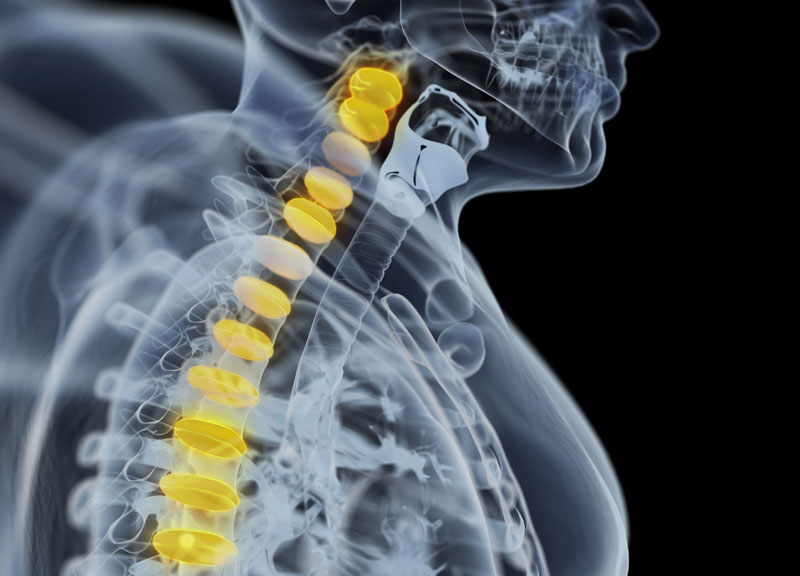When back pain is caused by a spinal disc problem, the source of the pain is either from a nerve being irritated by a protruding disc, or it is from the disc space itself.
Differentiating between the two can cause confusion among patients, as doctors may use a variety of terms to describe the problem—such as a slipped disc, pinched nerve, and degenerated disc. To help clarify disc problems, on this site we focus on identifying the source of the pain as coming from either a pinched nerve or a degenerated disc.
Pinched nerve
This type of pain occurs when the inner core of the disc leaks out an affects the nearby nerve root. In other words, it’s not the disc that hurts—it’s the nerve being intruded upon by the disc. The pain from the nerve can radiate along the path of the nerve to other parts of the body. If the pain radiates into the arms or legs, this pain is often worse than the actual back pain. Neurological problems, such as numbness or weakness, may also occur.
This type of pain is medically termed a radiculopathy. When radiculopathy occurs in the lower spine, it is often referred to as sciatica.
Pinched nerves can be caused by:
- Herniated Discs
- Spinal Stenosis
- Bone Spurs that occur as a result of osteoarthritis
While less common, a pinched nerve may also be caused by other conditions such as a tumor, infection, or spondylolisthesis.
Disc pain
Degenerative disc disease may be diagnosed if the pain originates from within the disc itself.
The pain is caused by a combination of the following:
- Inflammation. The proteins released into the disc space as the disc degenerates can cause inflammation. Inflammation usually causes pain.
- Abnormal micromotion. If the outer rings of cartilage that encapsulate the disc, known as the annulus, break down, they will not be as effective in resisting the motion in the spine. This abnormal motion could cause pain. As the body attempts to counteract inflammation and abnormal micromotion, muscles in the area may spasm, which can cause the sharp, shooting pains typical of a degenerated disc.
Focus on the cause of your pain
By focusing on the underlying cause of your pain, as opposed to only symptom relief, you will have the best chance of finding an appropriate treatment plan.





